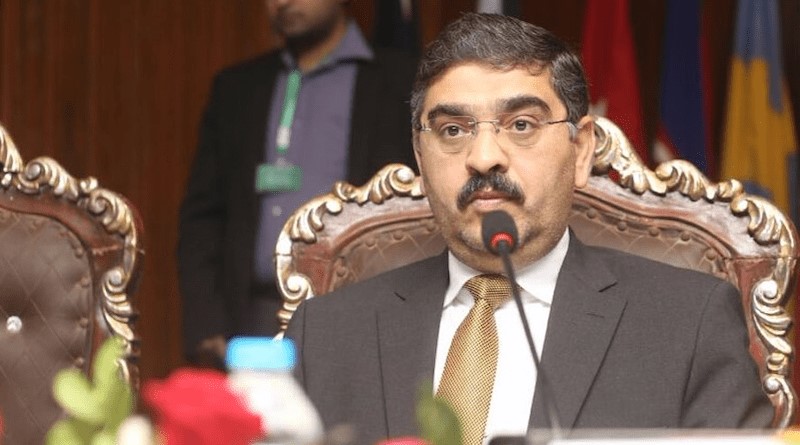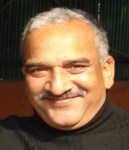Pakistan: Why Baloch Lives Don’t Matter – OpEd
- February 15, 2024
- Posted by: admin
- Category: Pakistan

Pakistan’s caretaker Prime Minister Anwaarul Haq Kakar obnoxious remark that “Advocates of terrorists in Balochistan should go and join them if they are convinced on the veracity of their issue and fight the state along with them, so that we know where they stand and how to deal with them” would have outraged the uninitiated. However, for those who have been following the unfortunate happenings in Balochistan, Kakar’s declaration comes as no big surprise as it merely reflects the long held jaundiced view that Islamabad has about the Baloch people.
It’s no secret that both Islamabad and Rawalpindi are convinced that the Baloch community is an enemy of the state which is being covertly sponsored by India to commit acts of terrorism. Hence, even Balochis peacefully protesting against the unending spate of enforced disappearances and extra judicial killings of their kith and kin by Pakistan’s deep state are considered to be terrorists by the establishment and this explains why the Pakistani caretaker prime minister made such callous remarks.
By saying that “We still respect their right to protest because their dear and near ones disappeared,” Kakar did try to put up a humane front. However, by adding that protesters “should also know that they [the disappeared people] were fighting against the state, with the help of RAW funding and aided by India” and concluding that the ongoing violence in Balochistan “is an armed rebellion, with foreign help,” he not only confirmed the existence of a perverse belief that the people of Balochistan are ‘enemy’ but also trivialised the serious issue of enforced disappearances.
Kakar’s attempt to justify enforced disappearances is unconvincing because it presupposes that every Baloch forcibly disappeared is involved in anti-national activities. For the caretaker prime minister to make such an irresponsible statement is unpardonable especially since he had been pulled up by Islamabad High Court [IHC] on this very issue less than two months ago.
In November last year, IHC had directed the caretaker prime minister to secure the recovery of 50 missing Balochi students or else be prepared to appear personally before the court. This legal missive surely must have shaken up Kakar because just within a week of these directions, 22 of the 50 missing Balochi students were recovered by the authorities and returned to their families.
In a subsequent TV interview, Kakar stated that “[The] state has no hand in these disappearances,” but admitted that “Most times, the security forces pick up the people who’re involved in activities which are against the law.” [Emphasis added]. Isn’t this statement an unambiguous revelation coming from the horse’s mouth that enforced disappearances by security forces is a routine affair in Pakistan?
Further, even if we accept Kakar’s view that security forces only disappear those Baloch people “who’re involved in activities which are against the law,” then it’s apparent that the 50 missing Baloch students picked up by the security forces must have in some way been involved in unlawful activities. So, if these students were involved in illegal activities, then why the ones who were recovered simply let off and allowed to go home without even being formally charged?
So, isn’t there much more than meets the eye?
In the instance case, the court order issued by IHC judge Justice Mohsin Akhtar Kayani notes that it was “disturbing that state institutions were accused of forced disappearance of Baloch students. The government of Pakistan, which was responsible for protecting the rights of citizens, was not able to stop these human rights violations.” Expressing his deep anguish, Justice Kayani went on to query- “Should we send this issue to the United Nations? Should we humiliate our own country?”
The case of Pakistani security forces disappearing 50 Baloch students gives an insight into the humongous scale of this vile practice. However, it’s just one of the countless examples of how Pakistani security forces as well as intelligence and law enforcement agencies [LEAs] are using enforced disappearance and extrajudicial killings as weapons for terrorising the hapless people of Balochistan with impunity.
This fact is evident from the 2011 Human Rights Watch [HRW] Pakistan Report. It quotes Bashir Khan, the 76 year old secretary general of the Baloch Republican Party during his “unacknowledged detention” by Pakistani security forces saying that he was told by an unnamed Pakistani official that “Even if the president or chief justice tells us to release you, we won’t. We can torture you, or kill you, or keep you for years at our will. It is only the Army chief and the [intelligence] chief that we obey.” [Emphasis added].
Regrettably, even 12 years later, things haven’t improved. The 2023 Human Rights Commission of Pakistan [HRCP] report [‘Balochistan’s Struggle for Hope’] validates this observation by revealing that “Of all the human rights concerns raised at various meetings and consultations during the mission [in Balochistan], the problem of enforced disappearances —allegedly carried out by local security agencies or at their behest—remained a constant refrain.” [Emphasis added].
For the traumatised Baloch people living under constant fear of being disappeared or becoming victims of extrajudicial execution, the cold blooded custodial murder of Balach Mola Bakhsh and three other Baloch youth by Pakistan’s Counter Terrorism Department [CDT] has proved to be the proverbial straw that broke the camel’s back.
A tailor by profession, 24-old Balach Bakhsh was picked up from his house by CTD persons on October 29 and produced before the anti-terrorism court on November 22 Charged for being in possession of explosives he was placed in police remand. However, on the intervening night of November 22/23, CTD claimed that he alongwith three other Baloch youth was killed during an encounter in an intelligence-based operation.
These patently clear extrajudicial killings led to the long march of more than 1, 600 km from Turbat to Islamabad in which thousands of Balochi men, women and even children participated. Many analysts opine that such a massive public mobilisation of Baloch people defying the establishment would send out a clear signal to both Islamabad and Rawalpindi that their days of giving the dog a bad name and hanging him are over.
However, Islamabad’s brutal response to the peaceful protest and perceptible absence of empathy by the government indicates that it’s in no mood to rein-in the security forces, or to put it more correctly, the security forces are unwilling to cease orchestrating disappearance and extrajudicial killing of Balochis.
During Balochistan visit in 2022, the then Prime Minister Shehbaz Sharif had mentioned that “I held meetings with the leaders here today and all of them said the same thing… development projects are important, but it is the other problems, predominantly the issue of missing persons that needs to be solved first.” [Emphasis added].
Promising that “I will speak for missing persons along with you,” Sharif said that “we will raise the issue with powerful quarters, and we will talk to them on the basis of law, justice and merit.” [Emphasis added]. However, with enforced disappearances and extrajudicial killings in Balochistan continuing unabated, it’s evident that the ‘powerful quarters’ [Rawalpindi] has paid no heed to his plea.
The most truthful answer to the question of why Baloch lives don’t matter was given by none other than the Director General [DG] of Pakistan army’s media wing Inter Services Public Relations [ISPR] during a media interaction in 2019. When asked about missing persons in Balochistan, DGISPR unabashedly replied, “We don’t want any person to go missing butwhen there is a war, you have to do a number of [undesirable] things… War occurs to be ruthless.”[Emphasis added], and justified enforced disappearances orchestrated by the Pakistan army by saying, “Everything is fair in love and war.”
In 2010, Pakistan Supreme Court judge Justice Javed Iqbal noted that “Disappearances of people of Balochistan are the most burning issue in the country.” [Emphasis added]. More than a decade later, lamenting failure of the government to stop enforced disappearances, IHC judge Justice Kayani expressed the judiciary’s helplessness by remarking, “Should we send this issue [of enforced disappearances] to the United Nations?
The legislature and judiciary’s inability to rein-in the security forces reveals the harsh reality that as long as the Pakistan army, its spy agency Inter Services Intelligence [ISI] and LEAs responsible for disappearing and extra judicially executing Baloch people do not come under the ambit of government and judicial oversight but continue to be law unto themselves, Baloch lives will never matter! FacebookTwitterEmailFlipboardMastodonShare


Nilesh Kunwar
Nilesh Kunwar is a retired Indian Army Officer who has served in Jammu & Kashmir, Assam, Nagaland and Manipur. He is a ‘Kashmir-Watcher,’ and now after retirement is pursuing his favorite hobby of writing for newspapers, journals and think tanks.
